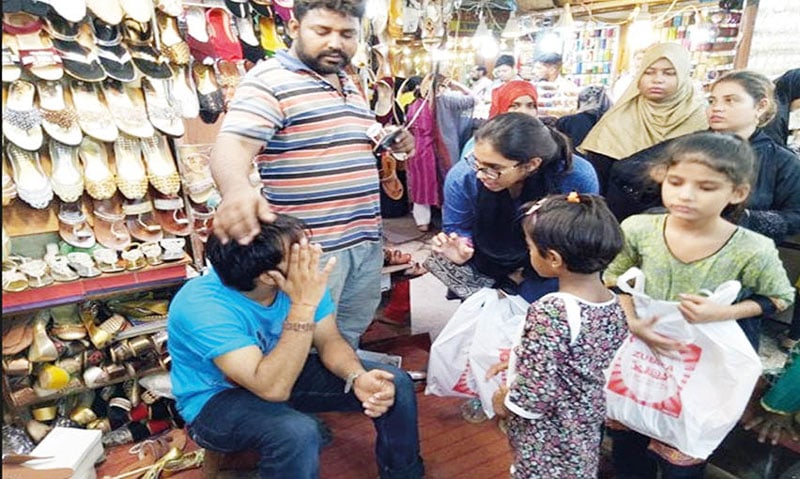If you frequently visit the markets of Rawalpindi and Islamabad, you may have overheard salesmen in shoe or garment shops speaking a language that seems unfamiliar, using numbers and expressions understood only by insiders.
Don’t worry, it’s not a new dialect it’s a coded system of communication passed down through generations, with shopkeepers using it to keep an edge over customers, protect profit margins and all without anyone catching wind of it.
Let’s break it down. One of the most commonly overheard words in this private terminology is “Bulla.” But don’t jump to a conclusion, it’s not name-calling or an insult. In fact, it is the term salesmen use to refer to a customer, regardless of gender. When a customer walks into the shop, the sales team quickly assesses their appearance, clothing, and posture. If they’re deemed a “Bulla,” the game is on.
So, who created this code? Where did it come from? According to many elderly shopkeepers, the origins are unclear. “It comes from our forefathers,” says one elderly Pindi salesman, “We call it ‘Batori,’ a collection of phrases that no one outside the market understands,” most shopkeepers responded similarly to APP.
Though there’s no official record of “Batori” in trade talk history, it continues to thrive in the streets of the twin cities and beyond.
Muhammad Afzal, a salesman with over 30 years of experience in Pindi, Islamabad’s markets, shares his insights with a grin. “This secretive set of slangs is passed down like a sacred trade secret. Every new salesman to the market is taught as an initiation ritual.” According to Afzal, it helps conceal information from the customers about a product’s real price and
allows salesmen to control the process to ensure maximum gains.
He continues, revealing a few more covert terms. “Bulla chokas ee khial rakhi,” for example, roughly translates to, “This customer is well-off, treat him with respect.” The message is clear from the senior or the shop owner to make sure this person walks out with something expensive in their bag.
Conversely, if a customer is just browsing, there’s a code too: “Diwo ha aitch karo.” It instructs a junior salesman to wrap it up and focus on more promising customers.
The phrase “Bulla kasso kahrr ha” signals that a customer looks too poor to make a purchase. “It’s a red flag. It tells the team to get rid of him quickly,” Afzal explained.
Salesmen have an entire arsenal of these coded phrases, like: • “Bulla palsi aa” (The customer is serious and will definitely buy).
“Chabbian lamtar dass isko” (This regular client is accustomed to offer a low price; quote the highest to cover the profit margin). (“Chabbian” means amount and “lamtar” means high).
“This insider jargon is in decline, and young salesmen aren’t picking it up anymore. It’s dying out, and at places like Saddar and Raja Bazaar, it’s mostly the older folks who still use it,” said Shafique Ahmed, a salesman at Family Wear.
Faisal, a customer at Aabpara’s Club Shoes, responding to an APP inquiry about his understanding of this coded communication, said, “I’ve heard some strange words before in the shops, but I thought it was just casual chatter between them. Never realized it could be a whole coded system.”
This coded communication also raises ethical questions. Is it clever marketing or just manipulation? Some see it as part of the competitive market and a fair practice; others as deceiving customers.
“It’s like a hidden toolkit for understanding customers. Just a few words help us figure out the right approach, saving time and ensuring we don’t miss a sale,” Mahroof, a seasoned shoe seller in Commercial Market, Satellite Town, remarked, sharing his thoughts with this scribe.
Farooq, another experienced seller, nods in agreement, “Our disguised messaging lets us focus on real buyers, avoiding the rush. It keeps things flowing smoothly and makes the job more rewarding as we are paid extra bucks for each deal, in addition to our salary.”










